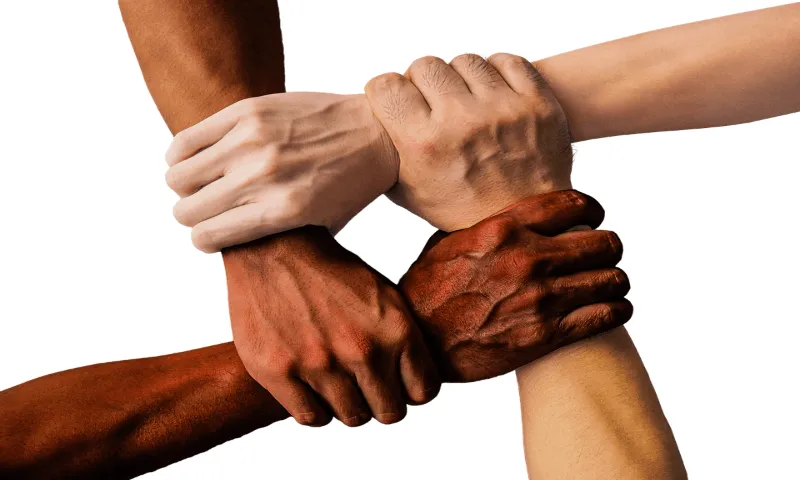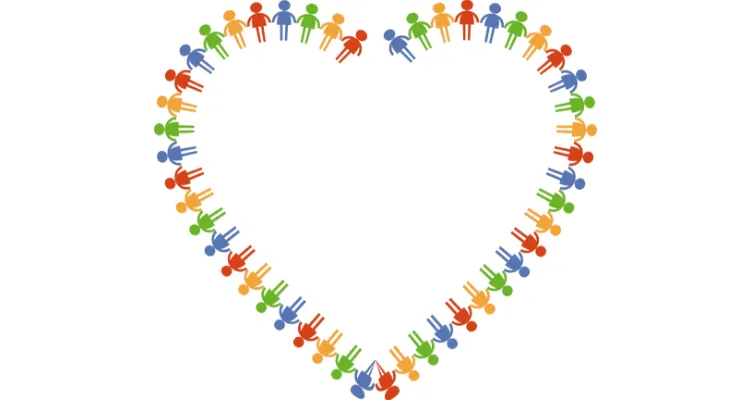
Last week I shared here on Steemit a post discussing certain emotions and behaviours that platforms such as Facebook elicits in some of us. I presented behavioural (positive reinforcement) and neuropsychological (the dopaminergic pathway) reasons to explain as to why we often feel uncontrollably drawn to our social networks; with many of us even describing that urge as an addiction. In a comment to that post @moshroom presented yet another explanation, through theorizing a link between our ‘need for external validation’ and social media addiction. He wonders whether our constant seeking for approval plays a part in it, and politely asked me to write a post with my views with respect to this.
An Innate Need for Belonging
@moshroom’s words immediately brought to mind the works of Abraham Maslow, a humanistic psychologist who not only placed belongingness in the human’s hierarchy of needs 1, but also posited that it is a necessity we are born with. Seeking for approval is to seek for acceptance, it is to seek for a sense of belonging; aspects that are fundamental for our emotional development and psychological well-being. Through a sense of feeling approved by others we enjoy higher levels of self-assurance as well as of self-esteem; emotions that help us thrive, as they keep us motivated, moving forward, and as William James would say, surviving. He, who in the 1890’s, recognized self-esteem as essential a human need for survival as fear 2. So, following both W. James’s and A. Maslow’s ideas, it would make sense to say that seeking for approval is something that we do instinctually.
Who We Are vs. Who We Should Be

However, things are not as straight-forward as: seeking-approval = finding approval. Very early on in our development, both our experiences and the expectations imposed by family and society impact who we are; in ways that - simplifying what Carl Rogers explains - moulds who we are to who we should be 3. From a Freudian’s point of view, this could be explained by how, mainly during childhood years, our instinct/nature (the id) is controlled through the development of our subjective individuality (the ego) and culture/society (the superego).
Nevertheless, the need for belonging doesn’t come to a halt when we get older; and, if in order to feel approved and validated, one needs to change a thing here and there; well, that is exactly what some people will do, some to a greater extent than others. This isn’t a transition in which we participate passively, though, especially when we are adults; this is a process in which we are instrumental.
With regard to social media, personally, I see this mechanism as an explanation to why so many individuals lose their authenticity, their true-selves; as a dear follower of mine pointed out “ ... they will do anything to be more attractive, cool and badass” 4. And here I go again: all in order to meet an instinctual drive for being approved by others, and consequently meet a deep-rooted need of belonging.
But, how far are we willing to go in order to be accepted and to belong?
Narcissism
There is a story I read on the news 5 that I will never forget. It is related to social media. It took place back in 2016 and involved Melina Roberge, a 24 year-old Canadian woman; who was, as stated by herself:
governed by a superficial desire to take pictures of myself in exotic locations to post on Instagram and receive likes and attention.
A desire that drove her into smuggling cocaine on a luxurious cruise liner, where she took photos and selfies, in an endeavour that ultimately sent her to jail.
If you remember, @moshroom also brought up external-validation in his comment, this term describes the process through which one seeks the approval of others as a means to make them feel worthy. People who are insecure and have fragile egos are particularly susceptible to seek external opinions in order to feel better about themselves.
Narcissists fall under this category. In his superb post Inside the Manipulator’s Mind: The Dark Triad of Personality, @dysfunctional explained that at subclinical levels, people who sport such trait behave in a grandiose, superior and entitled manner 6. To say that Melina is a narcissist is to jump to conclusions; however, her need for attention and likes from social networkers, makes me wonder about her self-esteem.
And this is something I always encourage people to ponder whenever they feel compelled to judge others in similar situations.
Confidence

Confidence/self-esteem is not to be confused with narcissism! There are some people out there who are incredibly confident. They, sometimes, are unfairly labelled as narcissists. But here is the thing, there is a remarkable difference between those two kinds of characters. And while the latter are people who you should probably avoid (I know it would be beautiful if I said here ‘help’; but, over the course of my life I learnt that you can only help someone who wants to be helped), the former are the kind who you can count on for guidance. You might be asking yourself right now: how can I tell one from the other? Well, it is not that difficult at all.
Do you remember what @dysfunctional said about narcissists? Narcissists choose dominance. People who have healthy self-esteem, on the other hand, favour equality. In the same way that while narcissists adopt arrogance, criticism and denigration. Confident individuals go for humility, constructive feedback and respect individuals for who they are.
All this can be explained by the very fact that people presenting healthy self-esteem have built their confidence upon real achievements, deep moral values as well as care and respect for others. This is not the same when it comes to narcissists, as their actions are generally fuelled by insecurity, inadequacy and fear of failure. So, you can see how social media can be a remedy used to alleviate such feelings. It provides people with the opportunity to quickly build a sense of belonging and obtain validation simply upon a ‘thumbs up’. Easy, peasy!
But, please note, that is shaky ground.
Incongruence
Carl Rogers’ person-centred approach presents the idea of a flexible self. However, it further discusses the notion that individuals can only distance themselves from their true-selves up to a point. At the moment that point is reached the individual enters a stage of incongruence, which is a Rogerian concept that explains the cause of human emotional conflict and distress 7. It is basically that grey area of our psyche where everything is unrecognizable, including ourselves.
Only yesterday my husband bought a book by Will Storr that illustrates an instance of incongruence right in its opening pages. The book starts narrating the case of Debbie, and this is what the author says about her:
As a child, Debbie always tried to be the person her mother wanted her to be. As an adult, she struggled to be the person she imagined her husband desired.
(Storr, p.4)
The lines that followed talked about Debbie’s young adult years, a period during which she had a major nervous breakdown and was hospitalised, as a consequence of her severely low self-esteem and huge self-loathing. Her true-self had been completely lost along the years, and so was her sense of belonging.
Building a Strong Foundation

It is the flexibility of the self that allows us to explore new territories, rediscover, and recreate who we are from time to time. This is also a very important process in life, as it leads to maturity, change of horizons and psychological growth. For that to happen, however, we need to know who we really are. Why? So then, we won’t end up betraying our core values, and forgetting what truly drives our motivations. That way, we are then able to negotiate and find a balance between the requirements of our inner-selves, and those of our culture and society. Something which, in turn, makes us good candidates for genuine acceptance, love and belonging; needs that when met lead us to a life of healthy self-esteem and self-assurance. A state that makes us able not only to receive love and appreciation; but, to return them back to individuals and communities.
Our need for approval and validation stems from our innate necessity to feel included. And, yes, I believe that is without a doubt one of the factors that push us towards social media. Particularly when it furthers our sense of belonging, or of being part of something that adds meaning to our lives. While I don’t see anything intrinsically wrong with this, it is important that we seek the kind of environment and people that respect us for what we genuinely have to offer, for our real accomplishments, and will to improve. An attitude that we also ought to have towards others. Just like we are meant to do in our non-virtual lives.
Reference List:
1 - Maslow, A. (1968). Toward a psychology of being. New York: Van Nostrand.
2 - James, William. [1890] 1983. The principles of psychology. Cambridge, MA: Harvard University Press.
3,7-Rogers, C. R., & Stevens, B. (1967). Person to person: the problem of being human: a new trend in psychology. Walnut Creek, Calif., Real People Press.
4 - Social Media – What is your cue to stop?.
5 - Melina Roberge.
6 - Inside the Manipulator’s Mind: The Dark Triad of Personality
8 - Storr, W. (2018). Selfie : How the West Became self-obsessed. New York: Overlook Press.


Thank you for once again taking the time to read my work.
I wish you all a great weekend filled with sunshine.
Best :)
“Our sense of belonging can never be greater than our level of self acceptance.”
— Brené Brown